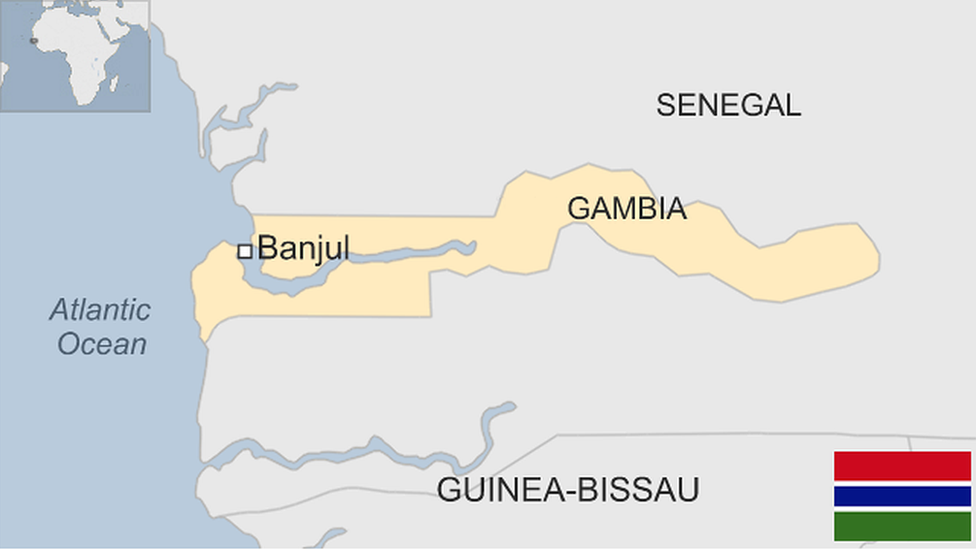Gambian wife's anguish over missing husband
- Published
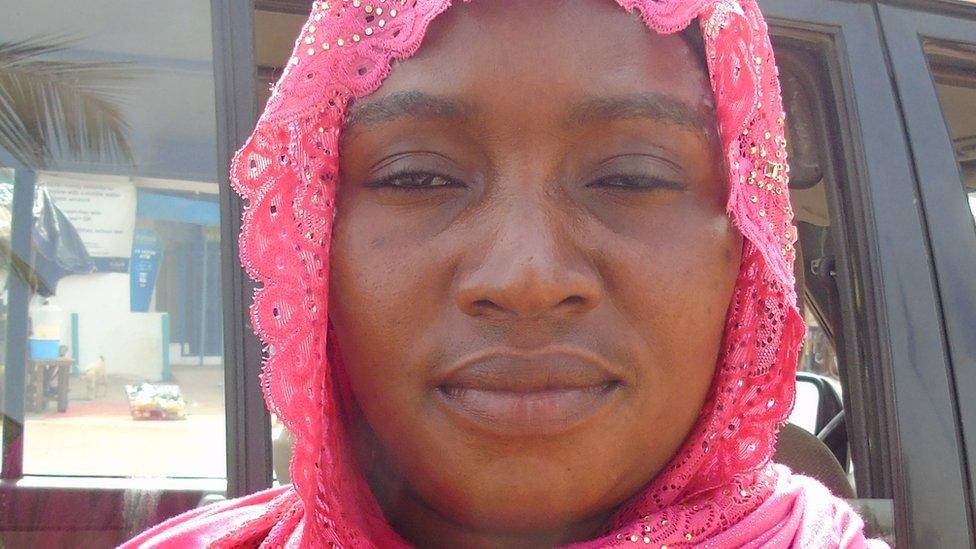
Isatu Kanyi: The doors opened but I did not see my husband
There were high expectations when The Gambia's President Adama Barrow took over from long-time leader Yahya Jammeh. But three months since his inauguration, the BBC's Umaru Fofana found that despair is already setting in.
Just days after Yahya Jammeh lost the election to Adama Barrow, the prisons started emptying.
Families were reunited, signifying an end to a time of repression and human rights abuses during the 22 years Mr Jammeh spent in power.
Although there are now no political prisoners in the Gambia, there has been no closure for Isatu Kanyi.
When she heard that the new government was releasing political prisoners, Ms Kanyi went to the gates of the notorious Mile 2 prison hoping to see her husband Kanyiba walk out.
"The doors opened, many people hugged their loved ones who came out, but I did not see my husband," she told the BBC.
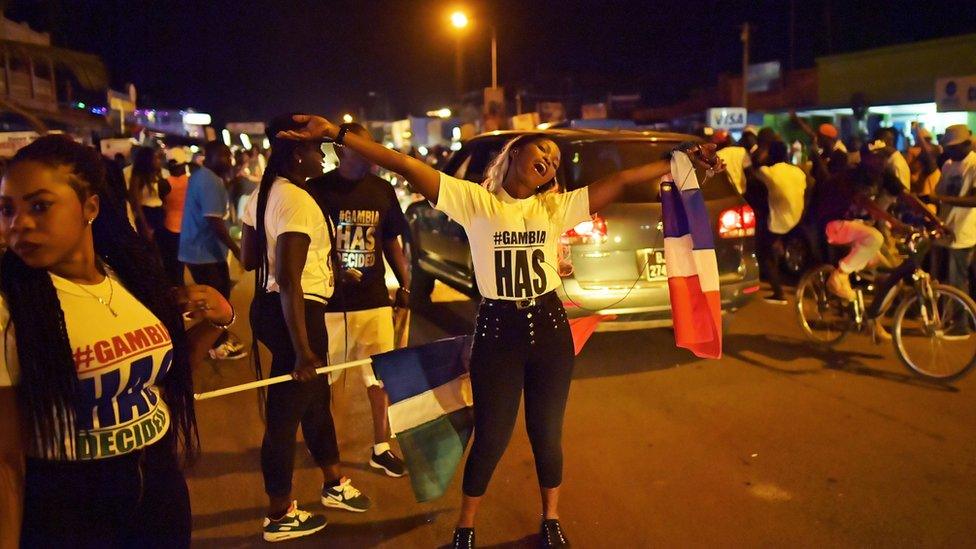
Gambians took to the streets to celebrate after Mr Barrow was declared the winner of December's election
Kanyiba Kanyi was one of scores, perhaps hundreds, of people who were picked up by security operatives of the dreaded National Intelligence Agency (NIA).
He was detained and in September 2006 was taken to the Mile 2 prison where political prisoners were detained and tortured.
"I had hoped to see him again," his wife said.
Her son would often ask her after his father, she said, "and all I can tell him is that his father travelled".
Ms Kanyi's experience perhaps represents the bitter-sweet experience of many Gambians under Mr Barrow.
True the NIA has been renamed and there are plans to completely overhaul the agency. Its former head and some other senior officers are standing trial for allegedly torturing to death a political activist last year.
But still there is the pall of emptiness.
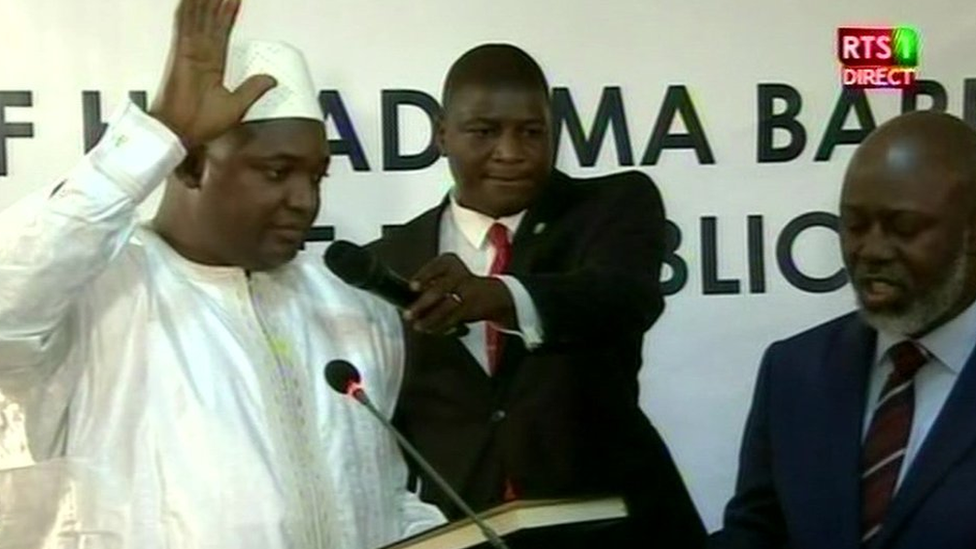
Adama Barrow was sworn in as president while in exile in Senegal
The euphoria of Mr Barrow's triumphant return to The Gambia from Senegal in January has died, giving way to sombre reflection as Gambians come to terms with reality.
In January, President-elect Adama Barrow had been flown to neighbouring Senegal by West African leaders for his safety.
He was sworn in at The Gambia's embassy in Dakar on 19 January.
There is undoubtedly a new aura of freedom. In a country where people could be arrested for simply wearing a T-shirt calling for democracy, Gambians now take on their government head on.
However, young Gambians, who were on the frontline of the battle to bring Mr Barrow to power, now express disquiet and frustration and they are doing so openly on social media.
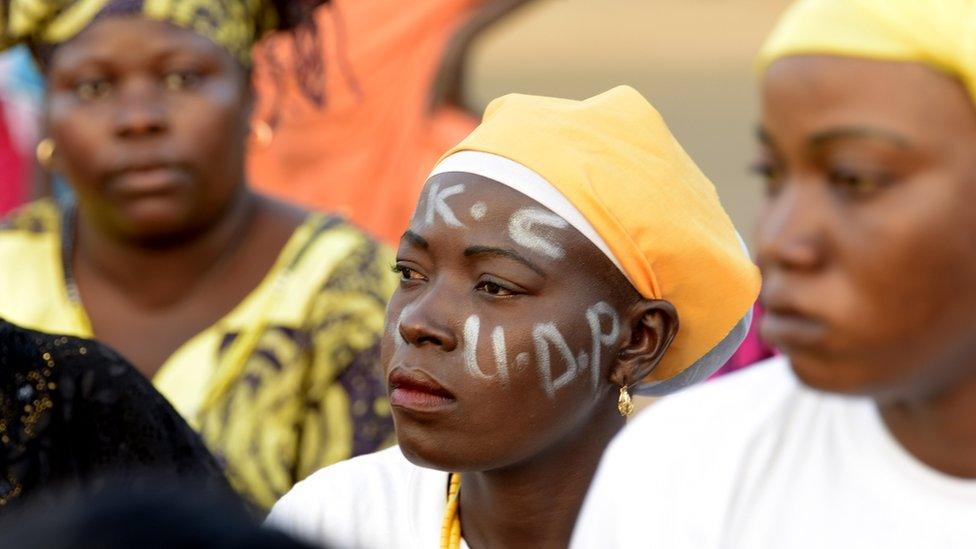
The UDP, which opposed Yahya Jammeh, now has a majority in parliament
"Gambia is really crying for a lot of things - electricity and water supply must be considered," said a young lady in a market in the country's largest town, Serekunda.
Her sentiments are echoed by many. Others more forthrightly call for jobs
Political scientist Ismael Ceesay says the recent months have been characterised by bewilderment, with the new leaders appearing out of their depth.
"People don't know what is happening because the government has really failed to come up with a clear agenda… to show us a vision," he told the BBC.
He attributes this to the lack of a vision in the new administration.
"They were not prepared to govern and all their attention was focused on removing Yahya Jammeh."
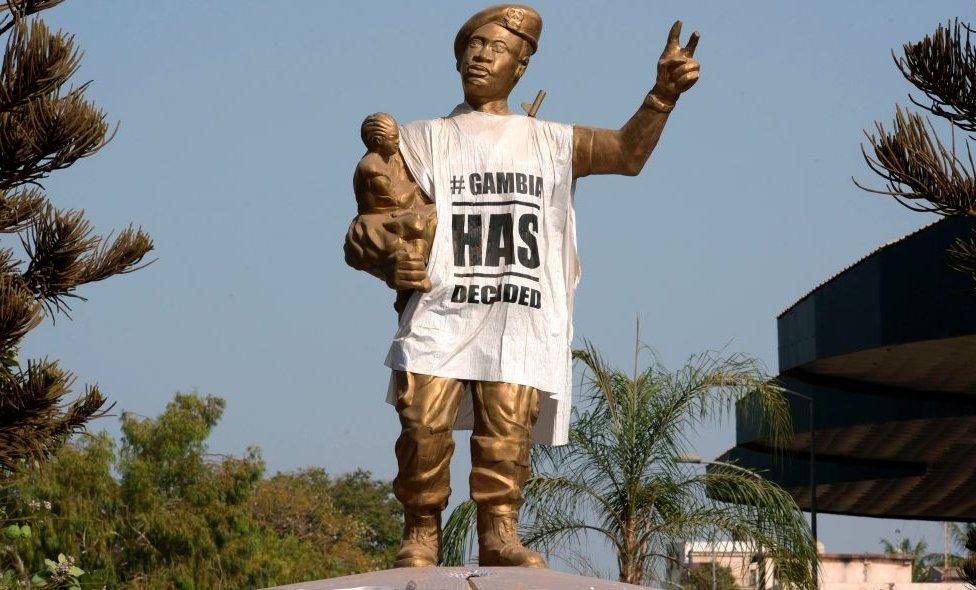
Public statues have been decorated with the pro-democracy slogan
He said that once that was achieved, the anti-Jammeh coalition disintegrated.
The seven-party coalition that united to defeat Mr Jammeh splintered ahead of parliamentary elections earlier this month, giving President Barrow's original party, the United Democratic Party, an overwhelming majority.
According to Mr Ceesay, some insiders say that long-time opposition leader and UDP founder Ousainou Daboe has become the real president.
"He decides most of the things [and] he sometimes overrules Mr Barrow's decisions," he quotes them as saying.
It was Mr Darboe's imprisonment which gave rise to the then little-known Mr Barrow becoming the opposition coalition's presidential candidate.
But Mr Darboe, named foreign minister by Mr Barrow, denies being a puppet master.
"I have not in any way dictated anything to President Adama Barrow… I have never tried to influence him and in fact to those people who want to have a grip over him I say: 'You cannot have it'."
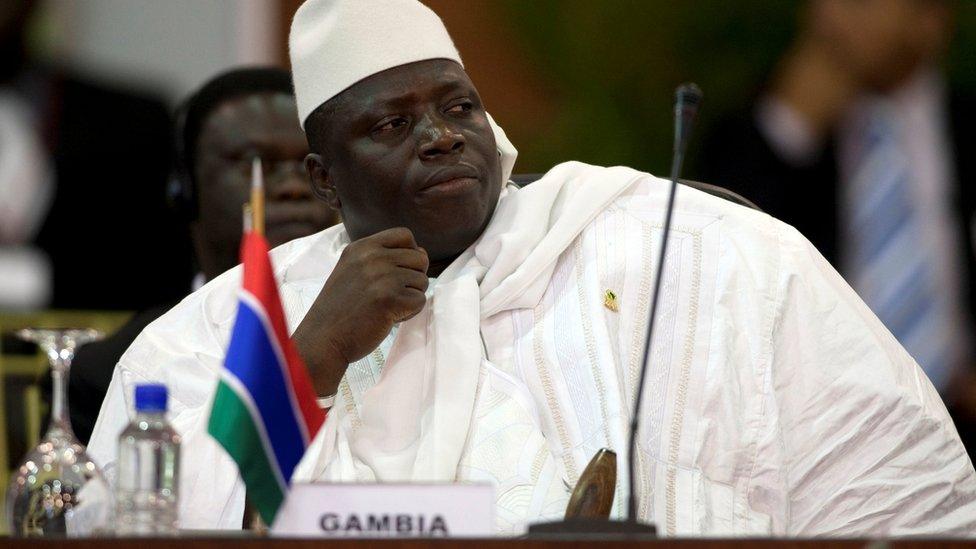
Yahya Jammeh came to power following a coup in 1994
The 68 year old says he is proud of the achievements of the current administration, citing institutional reform
"I think people are really eager but they have to be a little patient [as the] electricity problem is not one that is solvable just overnight."
As he prepared to board a flight for the oil-rich state of Qatar, he stated that the country's coffers were emptied by the former regime with funds now badly needed to address the electricity situation.
Agnes Thomasi, a Senegal-based Gambian journalist, said that her compatriots have become so disillusioned already that they "have started looking forward to the next government".
Among the disillusioned is the 21-year-old college student turned activist Ebou Camara.
During the post-election period when Mr Jammeh tried to cling to power, he helped safeguard giant billboards at one of the main junctions on the way to the capital, Banjul, on which were emblazoned the phrase #GambiaHasDecided.
This hashtag came to represent the struggle to force Mr Jammeh to relinquish power.
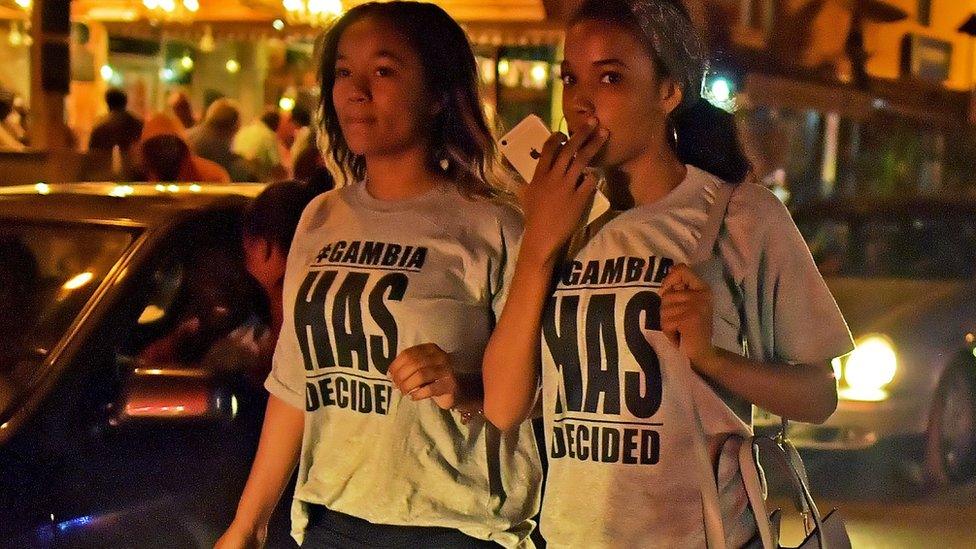
In the past, Gambians would be arrested for simply wearing a T-shirt calling for democracy
These billboards, erected shortly after the election, stand as a symbol of defiance, especially from young Gambians.
"After 22 years of subservience, we had had enough and we were no longer ready to tolerate Jammeh or be intimidated by him or his supporters," says Mr Camara.
He said that in a bid to protect the billboards, he and his friends sometimes clashed with Mr Jammeh's supporters and members of the security forces.
But now Mr Camara, who had only known Mr Jammeh as president, says that despite the sacrifices he and his others made, he is disappointed that the new administration has been "slow off the mark".
"The coalition has been bickering instead of providing leadership for us."
He warned that they may start defacing the billboards they once helped to protect if the new government fails to deliver.
- Published27 January 2017
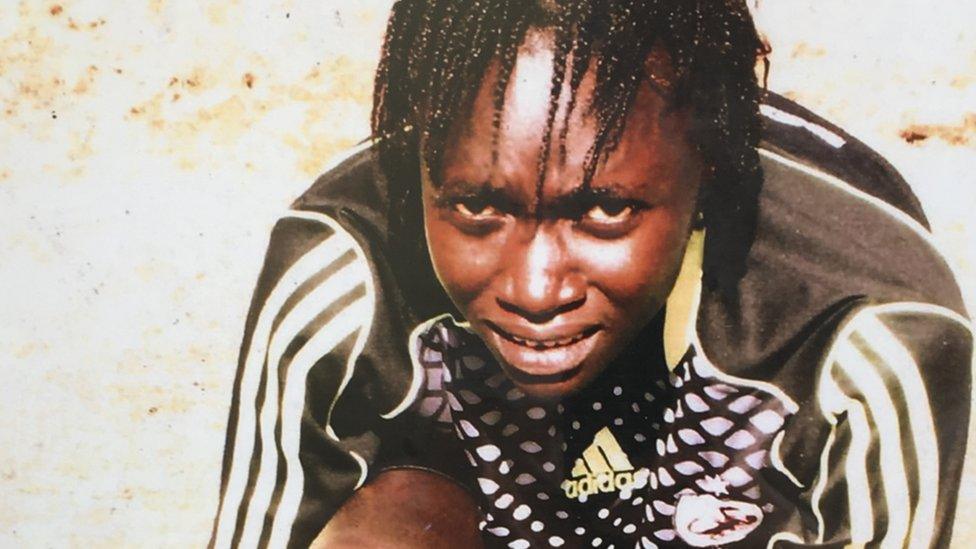
- Published13 December 2016
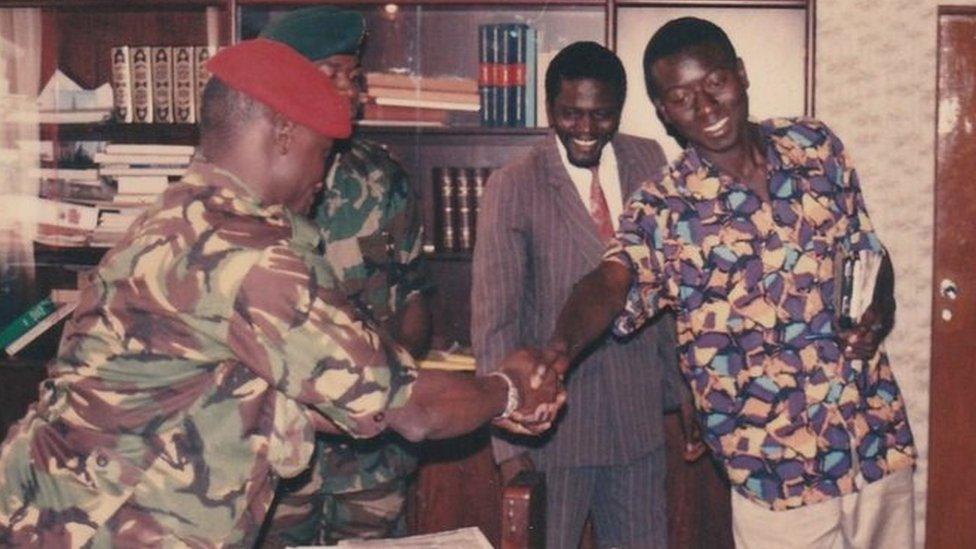
- Published19 January 2017
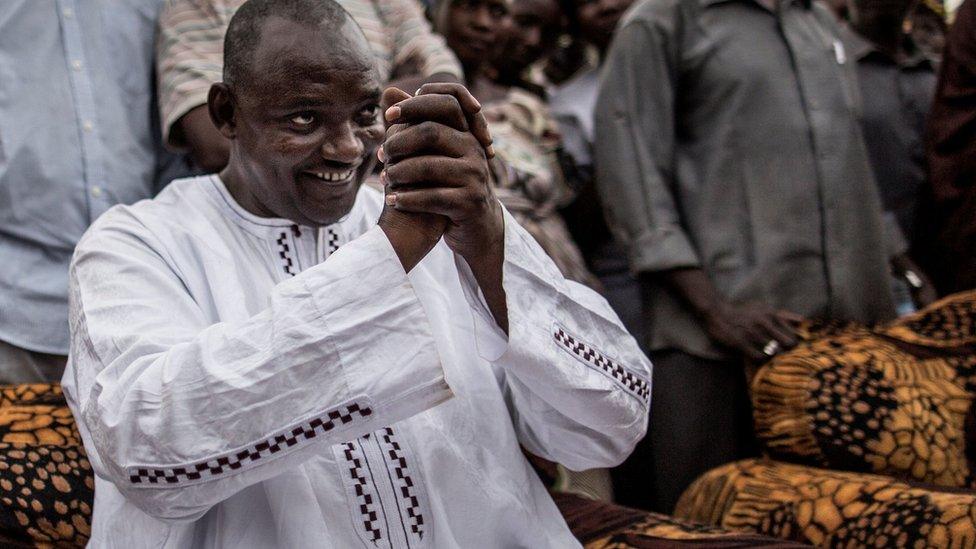
- Published22 January 2017
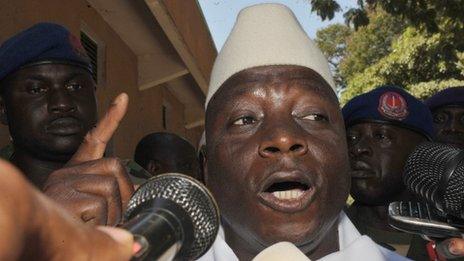
- Published12 April 2023
